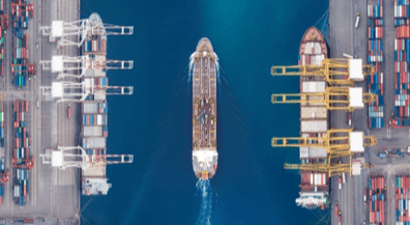Multiple Contracts can be Confusing
Traders need to be well aware of the legal considerations to be taken into account when negotiating an international trade transaction.
When importing or exporting goods, a trader is inclined to conclude a transaction on terms that place the least possible obligations on the trader concerned.
There are a number of separate (albeit related) agreements which form part of an international trade transaction e.g.:
- Agreement of sale
- Agreement of carriage
- Insurance contract
- Letter of credit or some payment agreement
Under the contract of sale, the main obligations are the effecting of payment on the part of the importer, and delivery of the agreed thing on the part of the exporter. The manner of delivery, passing of risk, obligation of insurance and carriage depend on the terms to which the parties have agreed.
Sale agreements usually deal with the rights and obligations of the parties by reference to Incoterms. Devised and published by the International Chamber of Commerce, Incoterms are at the heart of world trade. Incoterms are standard trade definitions most commonly used in international sales contracts.
The "E" & "F" terms are most onerous for the buyer. Such terms, however, allow the buyer to control the carriage and insurance and should reflect in a lower purchase price for the goods.
The "C" and "D" terms are less onerous for the buyer, but result in a higher purchase price and the seller arranges the carriage, and in most instances, the insurance.
While it is tempting to look for the least onerous incoterm, it may not always be a wise choice if it leaves the party exposed either under the other agreements, or due to consequence that were not considered.
A few commercial benefits to concluding a sale agreement based on Incoterms that obligate a party to bear the cost of insurance and carriage are:
- An ability to negotiate a lower price or higher purchase price for the goods, depending on whether the party is a seller or a buyer; and
- If the party has a good relationship with or a preference for a certain service provider, the party is able to obtain insurance or carriage services on terms and conditions more acceptable to it.
A vital consideration when negotiating an international trade transaction access to legal redress if things go wrong (and they often do in trade).
It is important to ensure that a party has a proper understanding of the agreed terms, including both the legal and commercial considerations. A party's risk must also be considered against the full suit of contractual obligations in order to ensure:
- The rights and obligations under the different agreements are compatible; and
- Obvious benefits under one agreement do not pose risks under another.
Legal advice is always desirable in circumstances where a trader feels he does not have a full appreciation of the legal implications of the international trade transactions he is seeking to enter in to.





